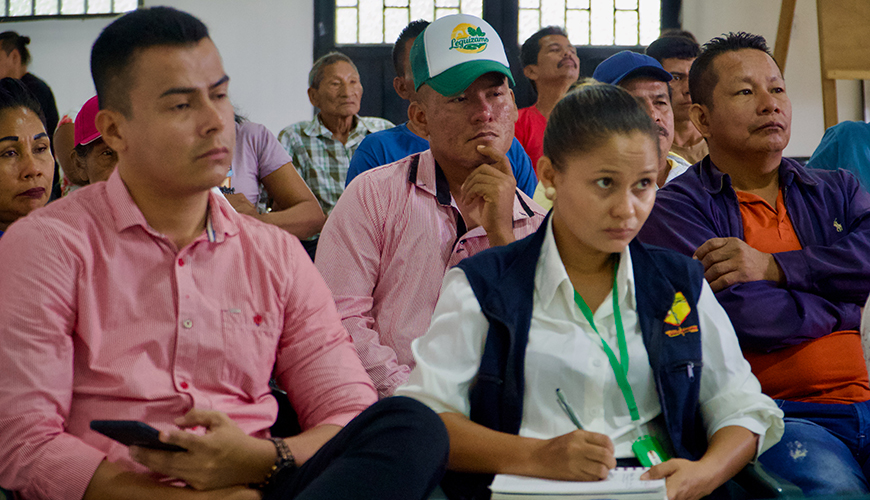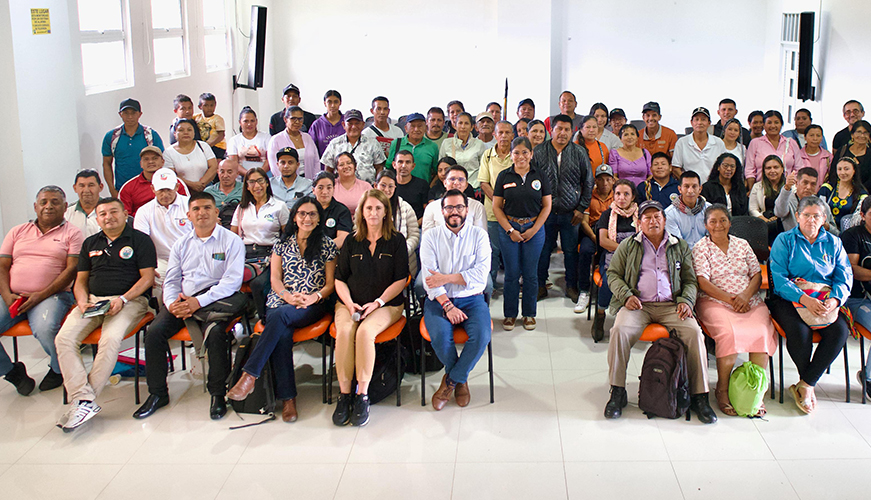The municipalities of Orito and Puerto Leguizamo, in Putumayo, were the scene of a new training day, carried out by the Interreligious Initiative for Tropical Forests and aimed at religious, community, indigenous and political leaders who make up the local chapters of IRI in Orito, Churuyaco, Siberia, Puerto Leguizamo, La Samaritana Indigenous Reservation and El Triunfo.
During the first session, held in Orito on June 19, the members of IRI-Orito, IRI-Churuyaco and IRI-Siberia received a conference on tropical forests and the challenges for their conservation, given by the geographer and Senior Subnational Consultant in Bioeconomy of the Global Green Growth Institute (GGGI), Belén Ojeda Cruz, who presented an overview of the situation of forests in the municipality of Putumayo and the different threats they face.
In turn, the expert Fernando Segura gave a workshop on citizen participation and social control for the protection of the Amazon. The political scientist explained to the attendees the various mechanisms of citizen participation and strategies to follow up on the development of state plans and programs related to environmental protection.
During the second pedagogical day, held on June 25, around 70 leaders from Puerto Leguizamo were trained on topics such as creation theology, biodiversity and ecosystem services, and political advocacy mechanisms. “Deforestation alters the rainfall pattern and aggravates environmental risks. Protecting Amazonian forests is also a strategy to mitigate climate change and preserve life on the planet,” said biologist Diego Fernando Campos, who gave a lecture on biological diversity and ecosystem services.
Next, the political scientist José Adolfo Castañeda led the workshop “Political advocacy: participation, collective actions and social control”, in which he addressed the concepts and the different stages of a political advocacy process. “It is a key tool for planning, organizing, developing and executing actions, when it comes to dialogue with the government or those in power. It allows for the construction of common agreements, the establishment of collective commitments and the monitoring of what has been agreed. It strengthens teamwork, positions agreements within communities and can even mobilize people to generate collective actions to protect the forest and the territory,” said the expert.
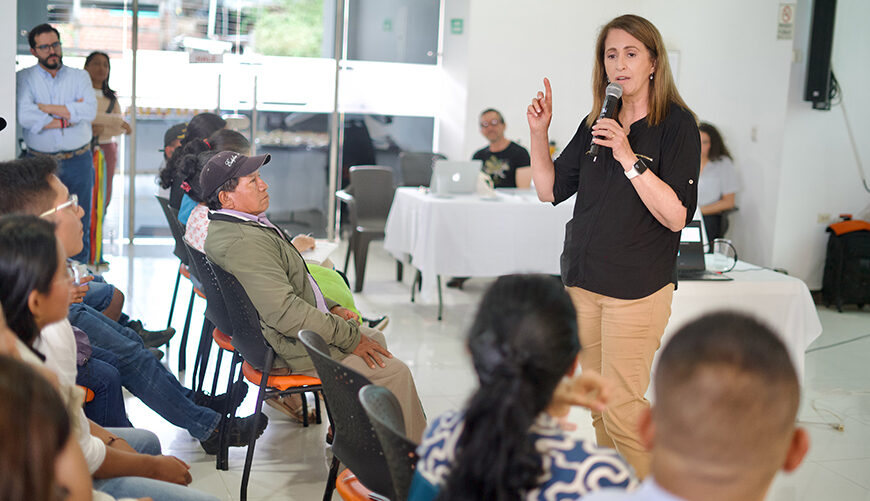 Training process in Orito. Blanca Lucía Echeverry, national coordinator of IRI-Colombia.
Training process in Orito. Blanca Lucía Echeverry, national coordinator of IRI-Colombia.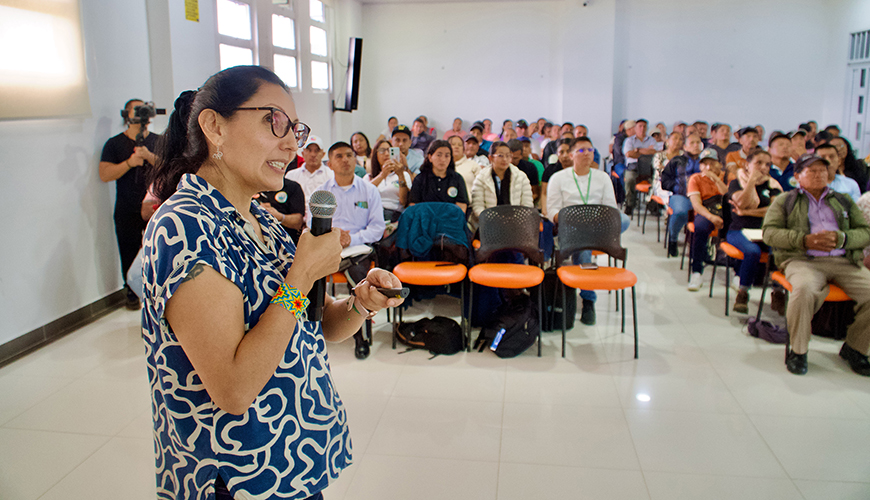 The geographer Belén Ojeda Cruz.
The geographer Belén Ojeda Cruz.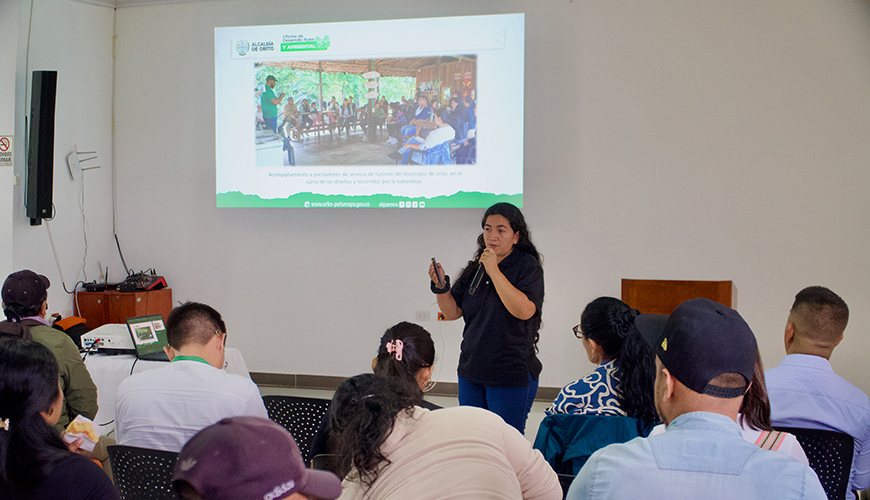
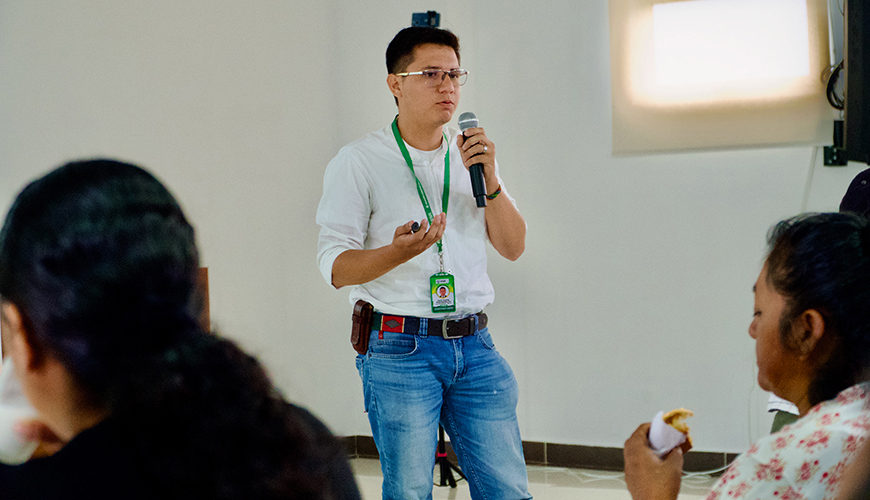
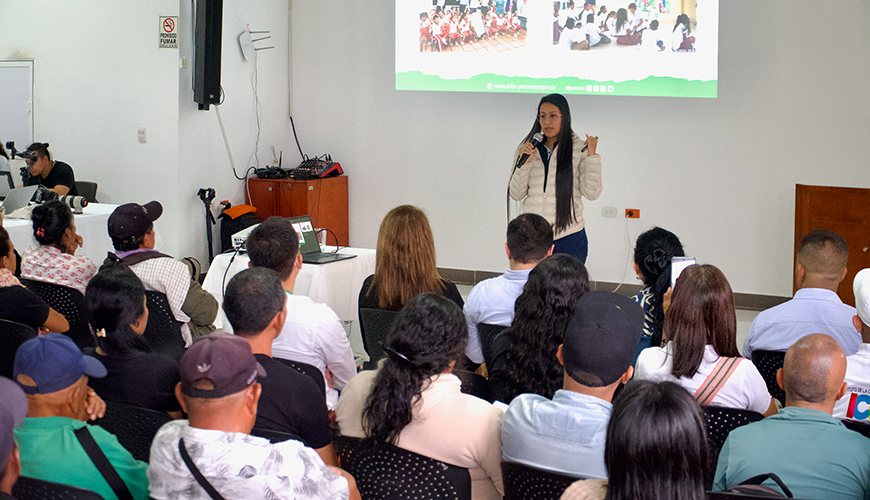
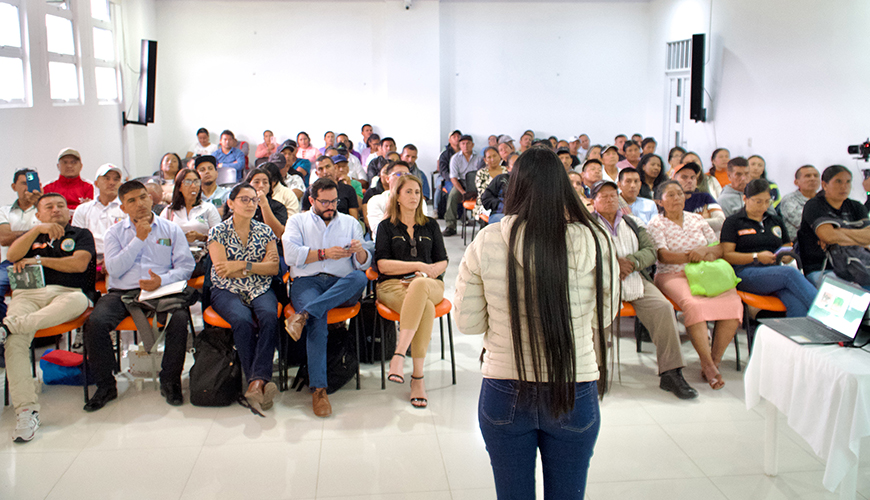
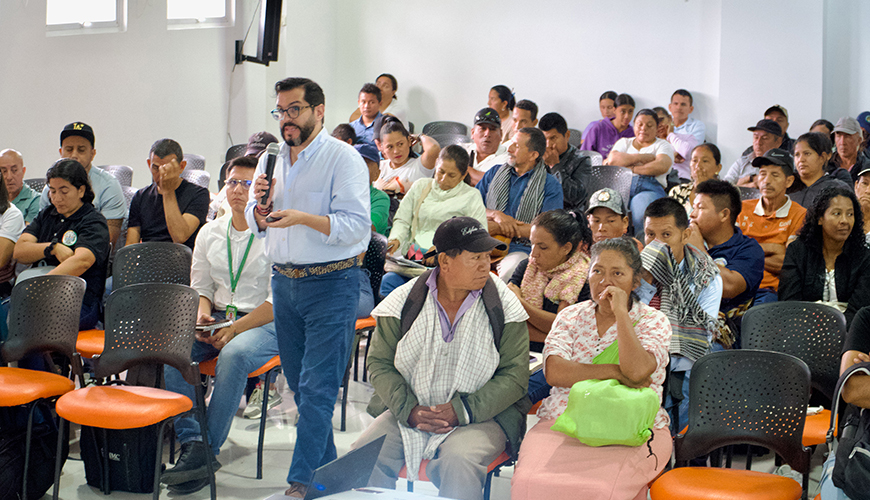
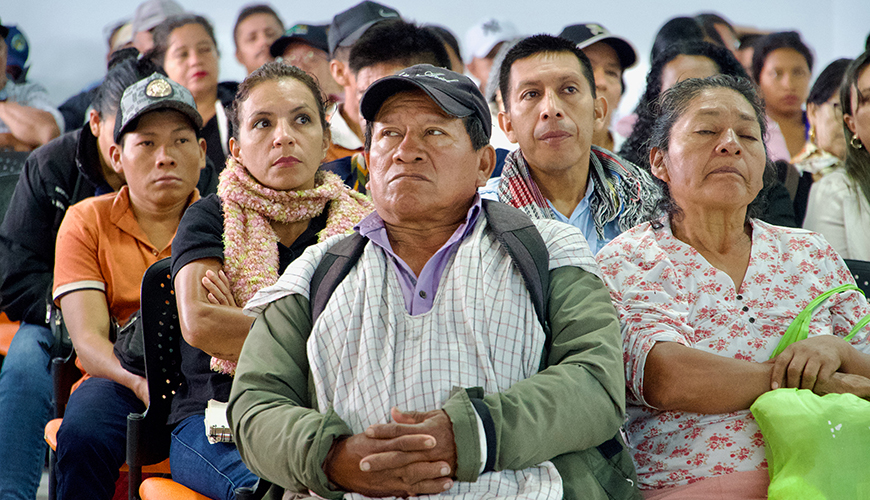
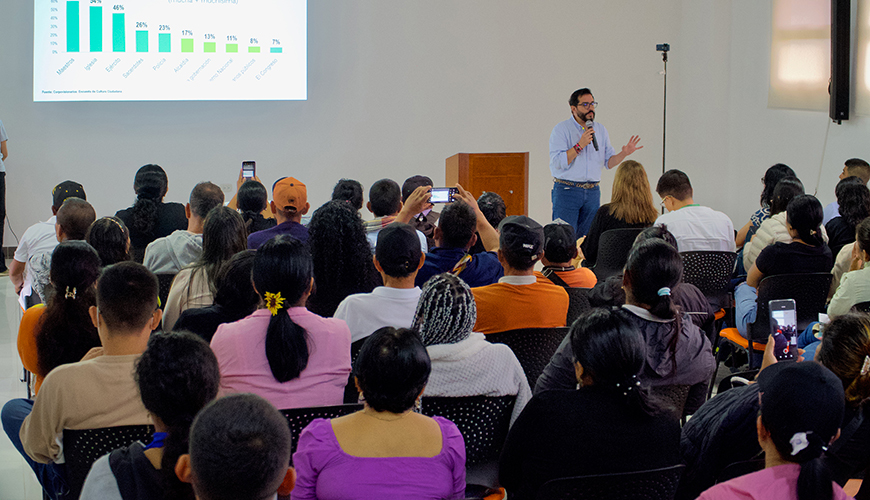
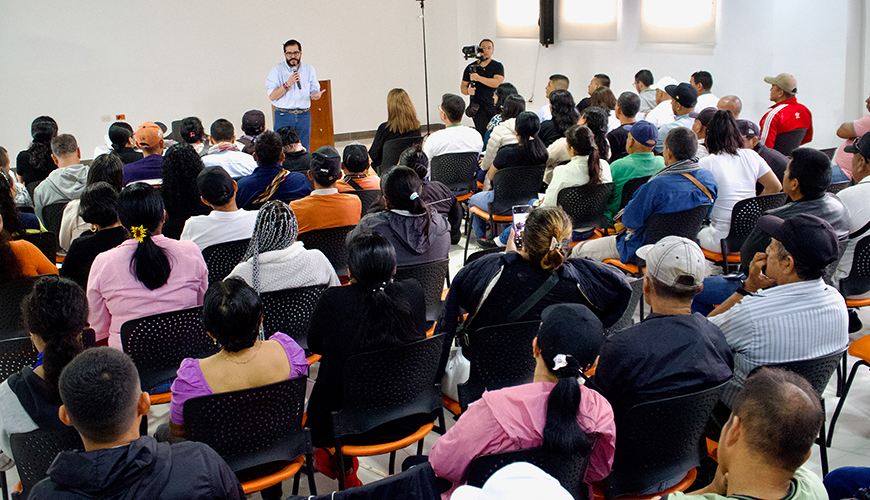
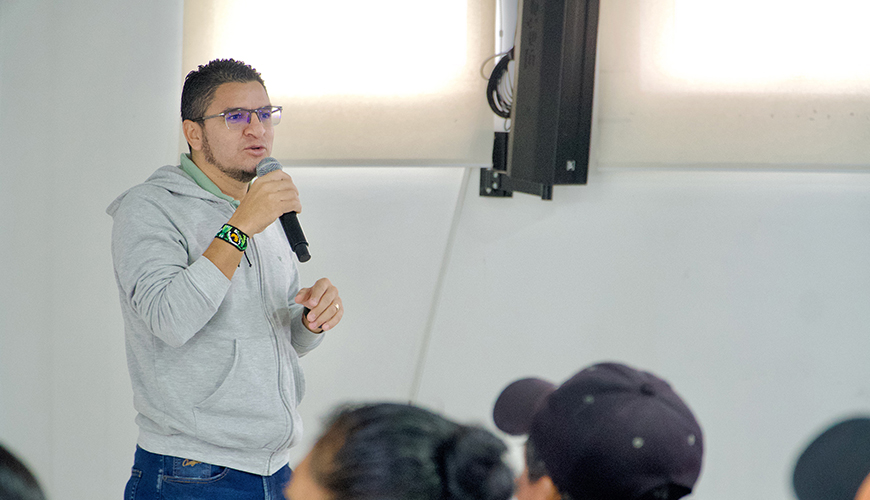 The municipal mayor of Orito, Édinson Ramírez.
The municipal mayor of Orito, Édinson Ramírez.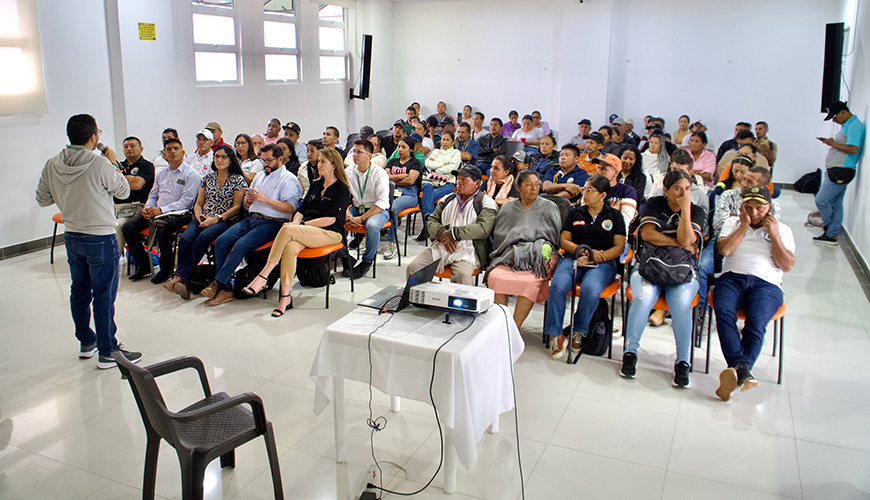
 Around 70 leaders from Puerto Leguizamo participated in the training process
Around 70 leaders from Puerto Leguizamo participated in the training process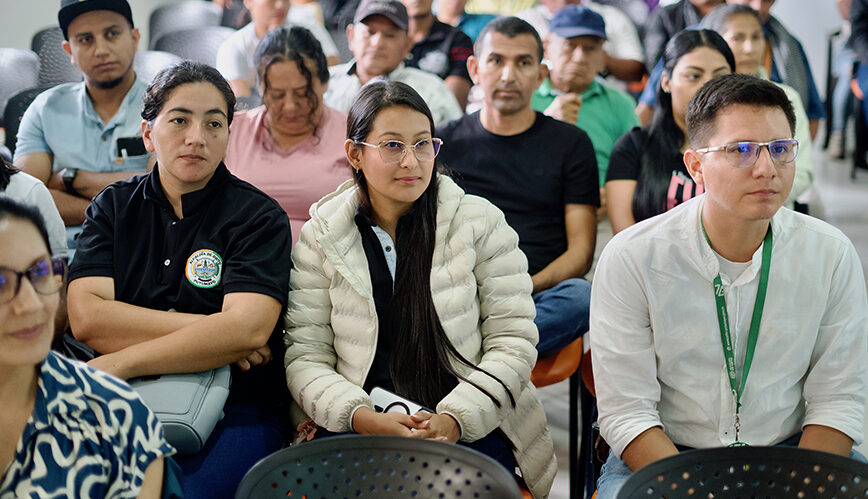 Karen Pantoja, Daniela Mosquera and Kevin Pepinosa, from the Office of Rural Development and Environment of Orito.
Karen Pantoja, Daniela Mosquera and Kevin Pepinosa, from the Office of Rural Development and Environment of Orito.
A space for dialogue with the authorities
Within the framework of the advocacy actions developed by the Initiative, during the training process in Orito, a day of dialogue was held between the community and the municipal authorities, called “Eco-balance 2025: achievements of municipal environmental management”.
The objective of this was to generate spaces for citizen participation that allow the members of the local chapters to monitor and evaluate territorial development plans, in particular, public policies related to the protection of the Amazon rainforest and the defense of the rights of its inhabitants.
During this segment, the municipal mayor Edinson Ramírez and the members of the Office of Rural Development and Environment, Daniela Mosquera, Karen Pantoja and Kevin Pepinosa, presented to the members of IRI the programs that the municipal government has been carrying out in favor of the protection of the tropical forests of Oritens, the conservation of biodiversity and the protection of water sources. They also answered questions from participants and invited them to join some of these programs.
“We must achieve a balance with nature. We count on you, the religious leaders and community leaders, who are in the territory and defend it,” said Edinson Ramírez, mayor of the municipality, who referred to reforestation projects on the Yarumo Basin, a ravine that supplies the Orito aqueduct, the process of buying land for the construction of an aqueduct in the village of El Pital and the delivery of eco-efficient stoves. as a way to help decrease deforestation.
In the municipality of Puerto Leguizamo, the Mayor in charge and Secretary of Government, Carlos Arbey Claros; the Secretary of Education Aydé Caicedo; and Maira Alejandra Hernández, Secretary of Agriculture, Rural Development and Environment, were in charge of presenting the progress of the municipality in terms of nature protection and deforestation control.
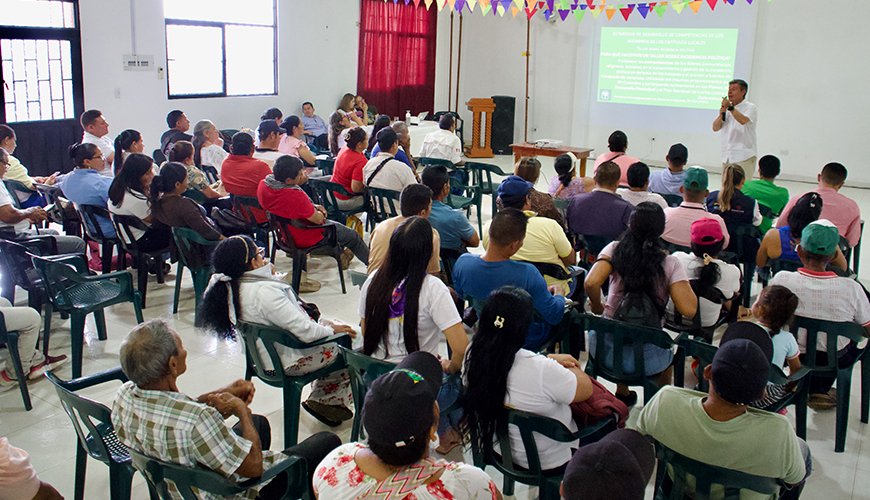 Training process in Puerto Leguízamo. José Adolfo Castañeda gave a workshop on political advocacy.
Training process in Puerto Leguízamo. José Adolfo Castañeda gave a workshop on political advocacy.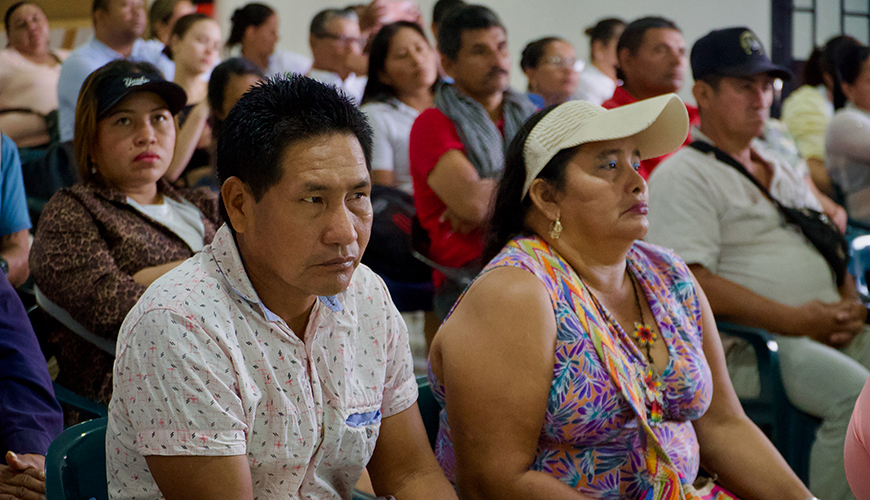
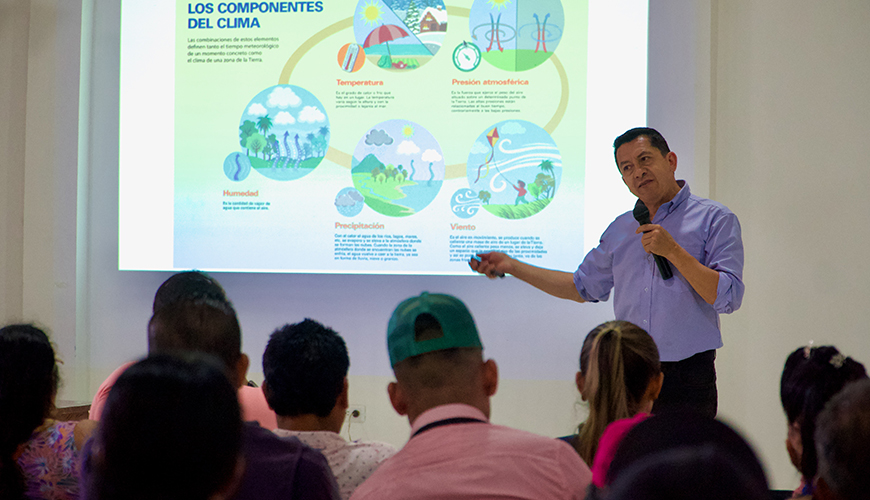 Diego Fernando Campos.
Diego Fernando Campos.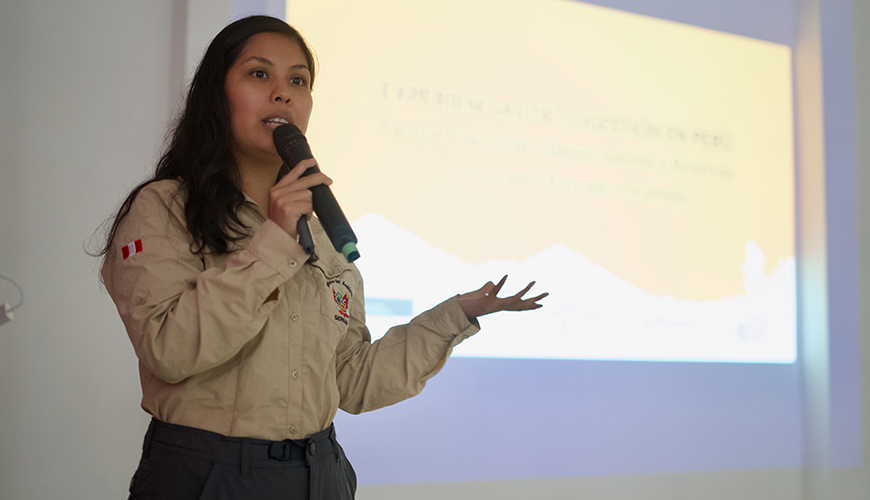 Elva Zulema Miranda, head of the Gueppi Sekime National Park, in Peru.
Elva Zulema Miranda, head of the Gueppi Sekime National Park, in Peru.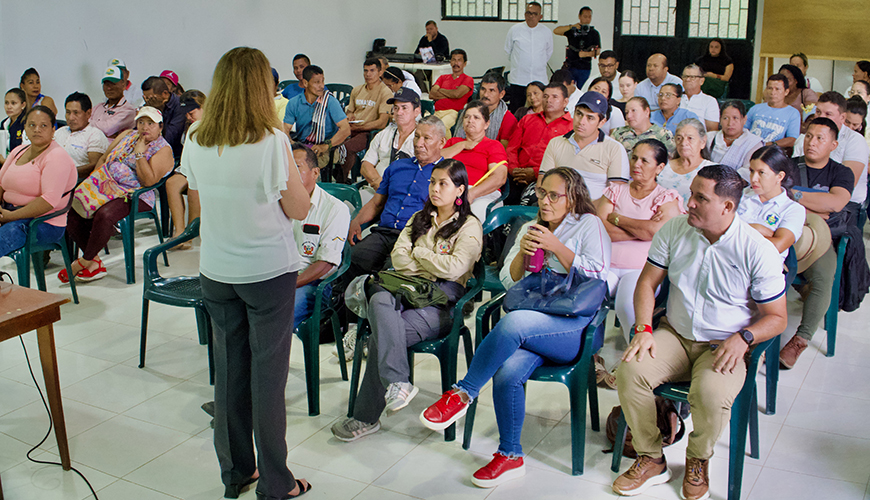 Maira Alejandra Hernández, Secretary of Agriculture, Rural Development and Environment, and Carlos Arbey Claros, Mayor in Charge and Secretary of Government.
Maira Alejandra Hernández, Secretary of Agriculture, Rural Development and Environment, and Carlos Arbey Claros, Mayor in Charge and Secretary of Government.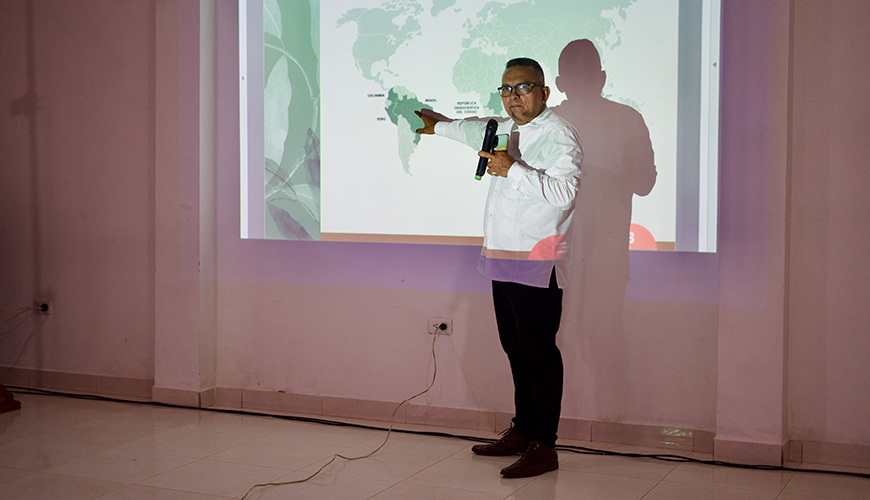 Pastor Germán Colmenares, coordinator of IRI's local chapters in Puerto Leguizamo.
Pastor Germán Colmenares, coordinator of IRI's local chapters in Puerto Leguizamo.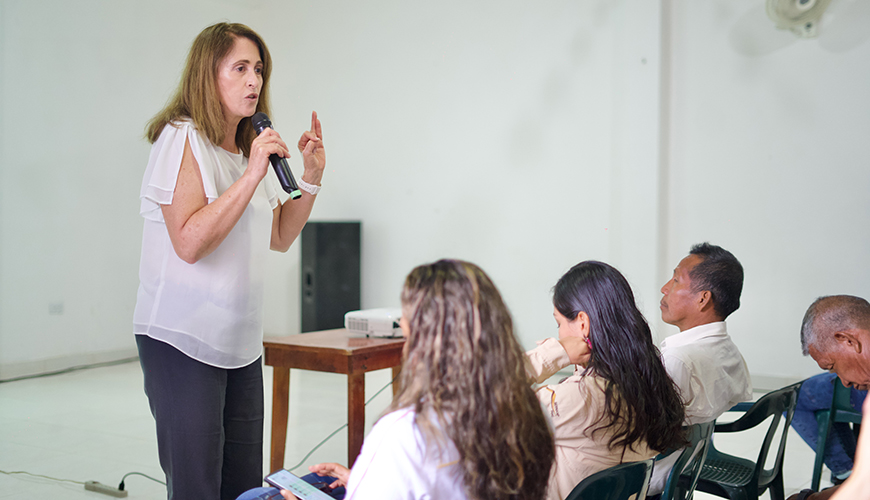 Blanca Lucía Echeverry.,
Blanca Lucía Echeverry.,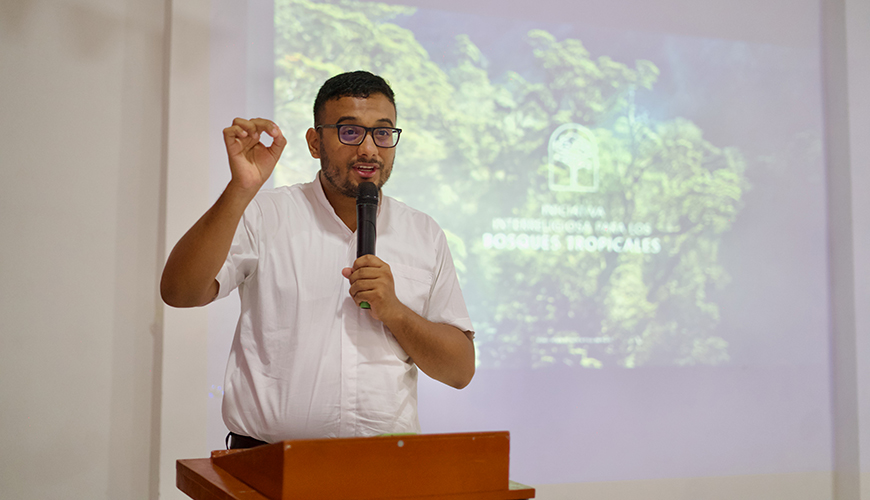 Father Yesid Hernández.
Father Yesid Hernández.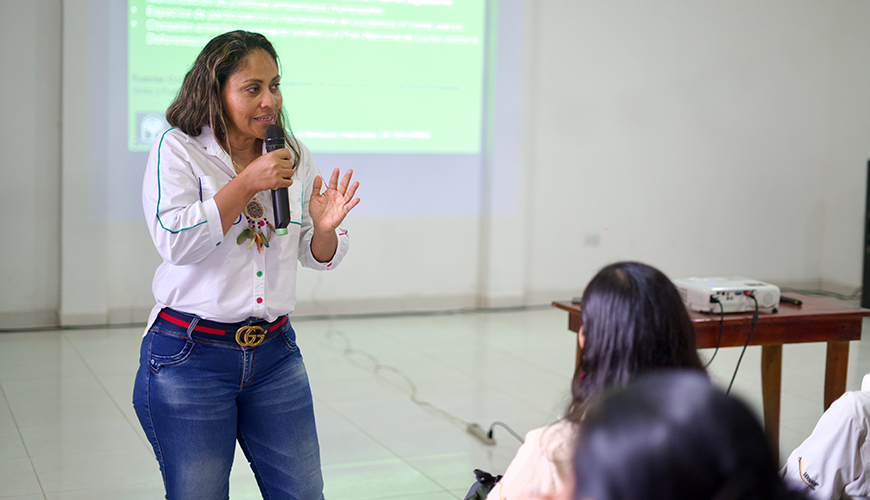
 Diego Fernando Campos.
Diego Fernando Campos.